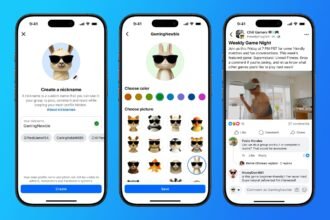Adam Mosseri, head of Instagram, posted on Instagram about the misconception that the social networking site is “listening” to its users to advertise to them. The company has denied the idea that it remotely activates the microphone to record conversations. This conspiracy theory is old, and speculation about it being true has not waned.
But Mosseri’s myth-busting and the resulting flood of social media speculation is ironically timed, as Meta has announced that it will soon set about targeting ads to users of its social apps, based on interactions with its recently launched AI products.
In this case, and in previous cases, Meta doesn’t need to record your conversations to generate spookily accurate recommendations.
Mosseri has said that he’s had several conversations over at Meta regarding user feedback, including from people who are constantly surprised by how ‘on-target’ Meta’s ad placement is. (Even his wife has brought up the topic, he says.)
Almost everyone has experienced, or at least heard someone say, that Meta had to have been sneakily recording their conversations to know what ads to show. It is especially eerie when you are just thinking about a certain product or topic, and then something related shows up in your feed.
The claims have been consistently challenged by the company, elucidating that the success of the company’s recommendations does not require the recording of conversations. (Mosseri, too, says that it would be a ‘gross violation of privacy,’ but Meta is not a company that typically prioritizes user privacy when making decisions.)
Even so, the company does not have to ‘listen’ to users to “listen” to them. In 2016, Meta (then Facebook), in a blog, claimed it did not access users’ phone microphones to decide which ads to show or what content to display in a user’s News Feed. Years passed, and Meta’s Mark Zuckerberg reiterated the same statement in Congress, denying that the company was ‘collecting audio data’ from users for that reason.
Mosseri emphasizes these points once more in his Instagram post, happy to have something that can be denied on the privacy front as it prepares to collect more data.
He states that, for one, users would be able to tell if the phone’s microphone was recording, as a light indicator would be on, and the battery would be consumed at a much faster rate.
Mosseri clarifies that the reason the company was able to develop a powerful recommendation system was due to its close working relations with advertisers. They disclose to the company the information about website visitors, allowing Meta to tailor ads to users.
Moreover, the potential ads are predicted based on the users’ interests and those of comparable peers. Over the years, this predictive algorithm advertising system has allowed Meta to become extremely profitable.
Meta plans to improve its AI capabilities to streamline decision-making on ad targeting, so there is the potential that the level of surveillance some users feel will be amplified. Its new privacy policy, to be implemented on December 16, will incorporate as a signal algorithm the data produced during consumers’ transactions with AI and other tools. Given the data being analyzed during conversations with AI chatbots like Meta AI, users are engaging in more personal exchanges than the typical “people who like this also like that.”
Mosseri explains that the hyper-accurate recommendations are not always driven solely by technology. In some cases, it may just be a coincidence or basic human psychology.
“You may have seen that ad before the conversation and not realized it,” he explains. “We scroll quickly. We quickly scroll past ads, and you may internalize some of that, which can influence what you discuss afterward,” Mosseri explains.




















